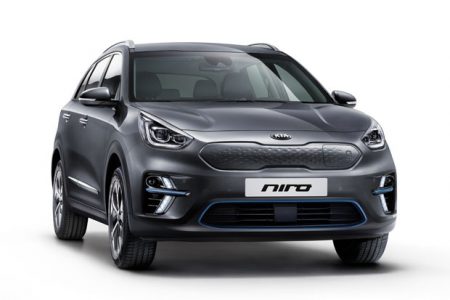Electric cars have been a long time in rising to prominence, but they’ve now well and truly arrived. There are more options to choose from than ever before, which helps to bring prices down, and smarter battery technology means you can travel further on a single charge, too.
Add in the fact that electric vehicles (EVs) let you travel in silence and produce zero emissions, are exempt from road tax and the London Congestion Charge, and (largely) qualify for a government grant to help make them more affordable and you get an idea of just how well placed they are to really assert themselves on the car-buying masses in the coming years. As the range between mains charges increases and the charging infrastructure improves, an EV becomes a more viable alternative to petrol- or diesel-fuelled models almost by the month.
Having first appeared around 10 years ago, the market’s first EVs were cars with around 80 miles of usable range and priced at a 50% premium over their petrol-fuelled counterparts. Today, in many cases, real-world range has more than doubled and that price premium has almost disappeared.
This is a list of our top 10 electric cars for families, compiled considering factors such as range, usability, driving dynamics and value for money. Some EVs are still subject to relatively high prices compared with combustion-engined cars, but their premiums can be offset against lower running costs.
1. Kia e-Niro
The Kia e-Niro redefines how much real-world range and family-friendly usability we should now expect from an EV towards the more affordable end of the price spectrum. For around £35,000, the car’s 64kWh battery pack enables it to comfortably travel 230 miles on a single charge; and further still if you stay off the motorway or around town. A few years ago, that would be the sort of range you’d be expecting from something far pricier, and probably with a Tesla badge on its nose.
That genre-challenging relationship between range, usability and affordability isn’t the sole reason why the e-Niro now crowns this list. Indeed if it was, the Hyundai Kona would be right up there, too. Where e-Niro pulls ahead, though, is that it also remains a thoroughly practical, dynamically well-resolved and pleasant-to-drive EV. It’s roomier than almost every other EV at the price, and it rides and handles with a greater level of sophistication and accomplishment than many of its rivals. It may lack some of the accelerative potency of its rivals, but as a well-rounded, truly usable affordable EV, the e-Niro is going to take some beating.
2. Volkswagen ID 3
As Volkswagen looks to move on from the fallout of Dieselgate, the ID 3 is set to take centre stage as the marque’s environmentally friendly wunderkind. This Golf-sized hatchback also gets the new ID sub-brand off the mark and aims to do so with the kind of mass-market sophistication and class-leading usability for which Volkswagen is rightly famed.
Built on an entirely fresh rear-engined platform, the ID 3 benefits from a long wheelbase, boosting cabin space, and is powered by a rear-mounted motor with up to 201bhp and 229lb ft. Two battery sizes are currently available, depending on the specification you opt for. A 58kWh pack lends a WLTP range of 261 miles, while the larger, pricier 77kWh battery ups that to 340 miles.
It excels in terms of manoeuvrability and low-speed response and, although heavy by compact car standards and rolling on wheels as big as 20in in diameter, it would seem to hit the company’s high standards for ride sophistication, too. Handling is surprisingly agile, balanced and nimble.
Although early versions of the car cost close to £40,000, ID 3 prices now start at just under £30,000 for a car with range and performance comparable with electric superminis at that price point, but better packaging and first-rate urban manoeuvrability.
3. Kia Soul EV
Kia’s boxy compact crossover is back for a third generation, but this time around, the Soul will be offered exclusively as an electric vehicle in European markets.
While not particularly sporty, it rides well, performs strongly and doesn’t make too much of a point of its 1682kg kerb weight. And because it makes use of the same powertrain as the slightly bigger e-Niro, it promises a WLTP-certified range of 280 miles when equipped with a 64kWh battery.
UK prices start from £33,795 after the UK government incentive, so the car will be only a few thousand pounds cheaper than the Kia e-Niro, which offers slightly more in the way of practicality. It’s one of the more pricey compact EVs on the market, clearly, but has more alternative styling appeal than the e-Niro and should easily attract people who can afford to pay a premium and don’t need quite as much space as an e-Niro affords.
Read more: AUTOCAR
It’s Time to Go Green!
If you would like to know more about Solar Panels and the PowerBanx range of home battery systems, and get a free instant quote, please complete our online form:


